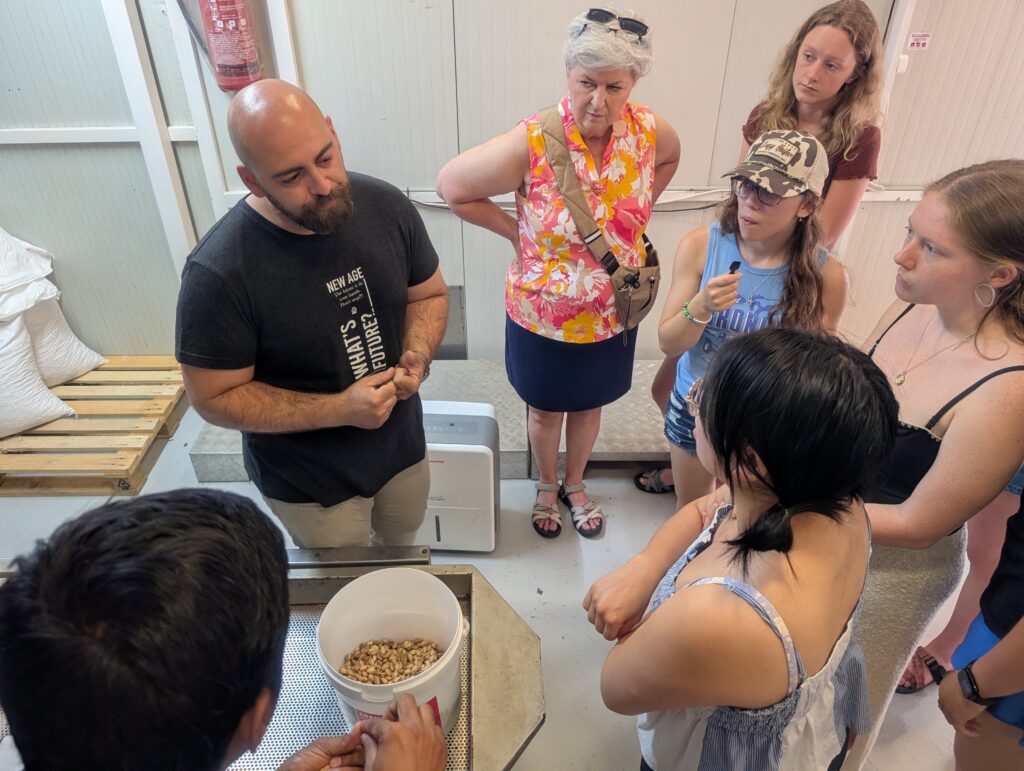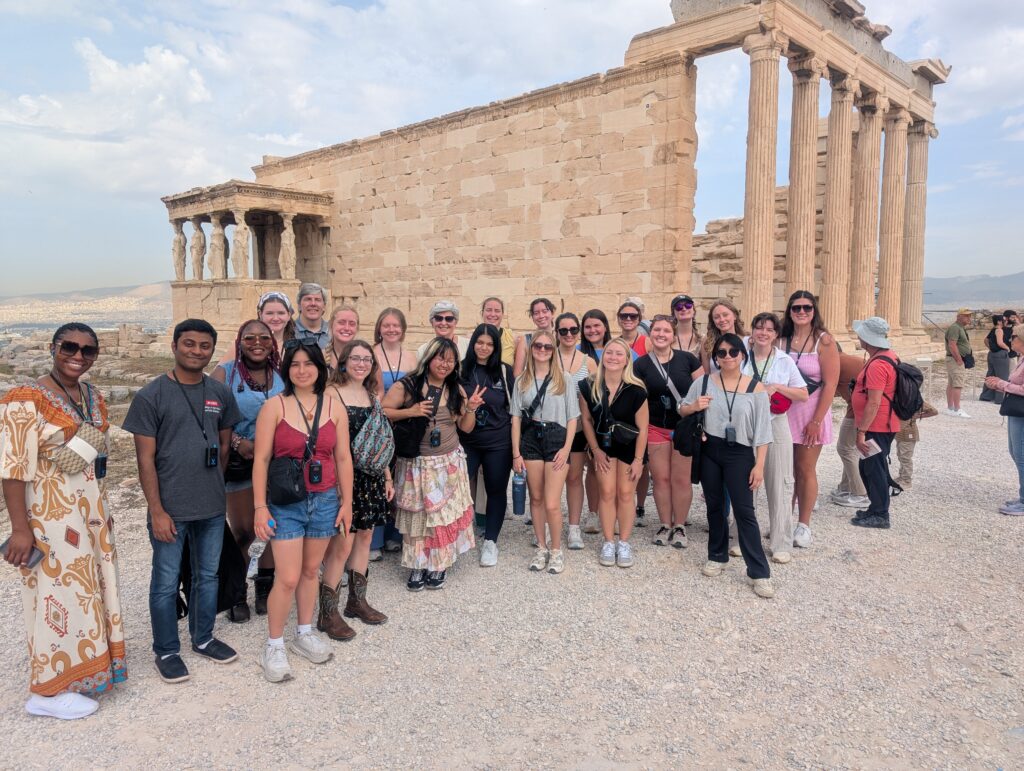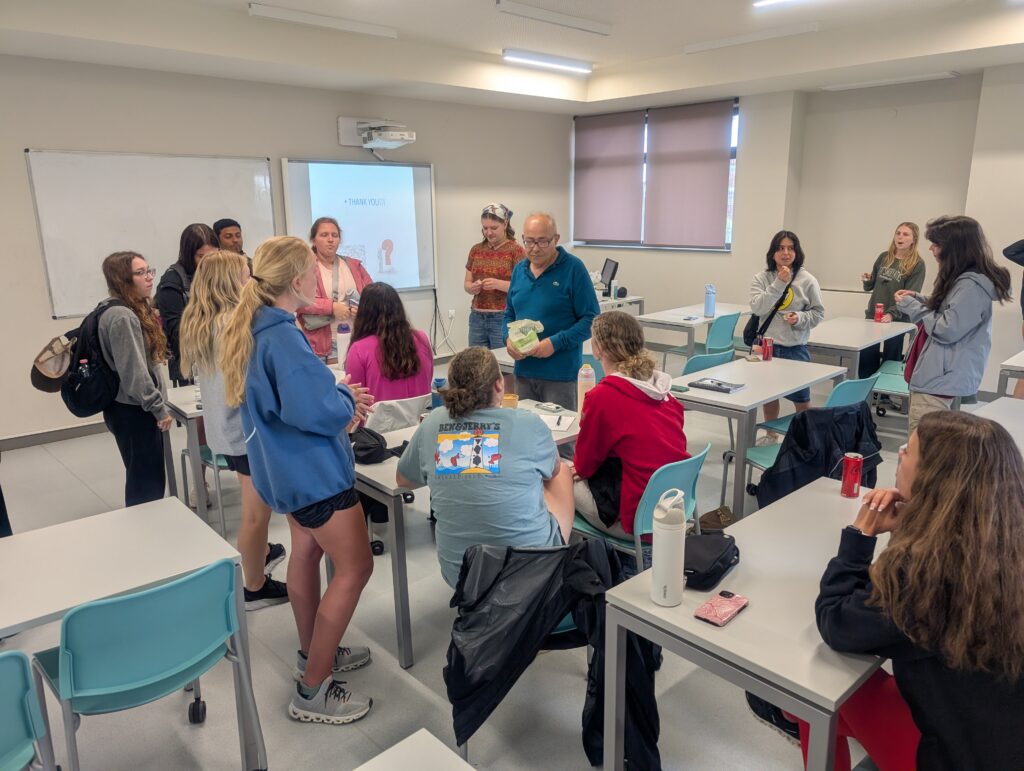Greek Agriculture Study Abroad Program Enriches Global Education
go.ncsu.edu/readext?1076289
en Español / em Português
El inglés es el idioma de control de esta página. En la medida en que haya algún conflicto entre la traducción al inglés y la traducción, el inglés prevalece.
Al hacer clic en el enlace de traducción se activa un servicio de traducción gratuito para convertir la página al español. Al igual que con cualquier traducción por Internet, la conversión no es sensible al contexto y puede que no traduzca el texto en su significado original. NC State Extension no garantiza la exactitud del texto traducido. Por favor, tenga en cuenta que algunas aplicaciones y/o servicios pueden no funcionar como se espera cuando se traducen.
Português
Inglês é o idioma de controle desta página. Na medida que haja algum conflito entre o texto original em Inglês e a tradução, o Inglês prevalece.
Ao clicar no link de tradução, um serviço gratuito de tradução será ativado para converter a página para o Português. Como em qualquer tradução pela internet, a conversão não é sensivel ao contexto e pode não ocorrer a tradução para o significado orginal. O serviço de Extensão da Carolina do Norte (NC State Extension) não garante a exatidão do texto traduzido. Por favor, observe que algumas funções ou serviços podem não funcionar como esperado após a tradução.
English
English is the controlling language of this page. To the extent there is any conflict between the English text and the translation, English controls.
Clicking on the translation link activates a free translation service to convert the page to Spanish. As with any Internet translation, the conversion is not context-sensitive and may not translate the text to its original meaning. NC State Extension does not guarantee the accuracy of the translated text. Please note that some applications and/or services may not function as expected when translated.
Collapse ▲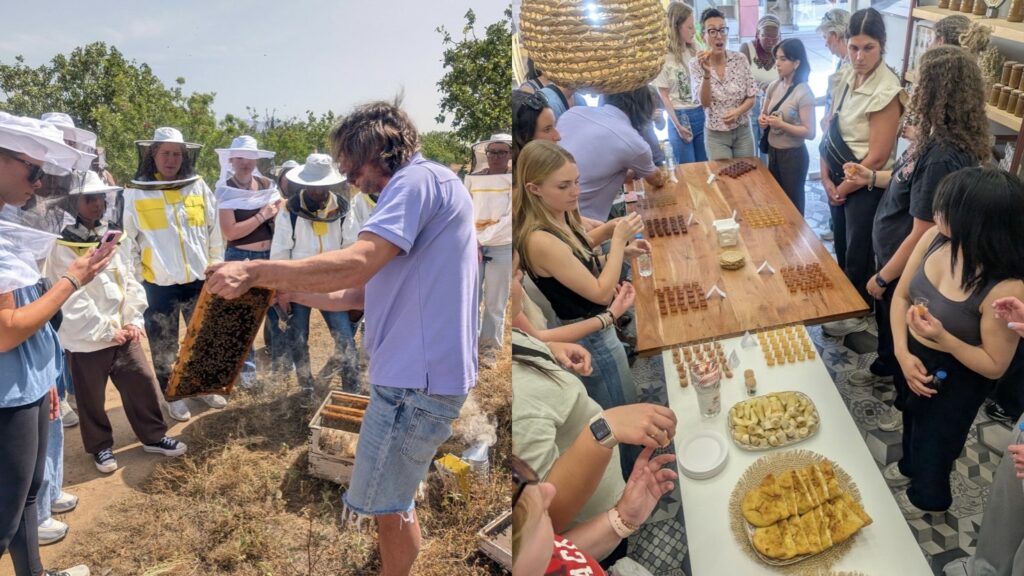
NC State students investigated honey production by looking into the hives and tasting 14 different honeys with Mouriki Greek Premium Honey.
In addition to Donaldson, Dr. Harriett Edwards, Professor and Extension Specialist, and Mr. Saifur Rahman, Graduate Teaching Assistant, from the Department of Agricultural and Human Sciences assisted in conducting the program. Students visited Thessaloniki, Trikala, Ioannina, Athens, and Aegina Island, Greece. In Thessaloniki, students stayed in residence halls on the campus of American Farm School and Perrotis College. The school features a dairy, vineyards, olive groves, and greenhouses, all amplifying the institution’s hands-on learning. Greek faculty provided NC State students daily, hands-on lessons in Greek agriculture, including farming practices and food processing.
- Ashlin Austin, Senior, Communication (Extension Education, Nonprofit Studies)
- Elise Bush, Junior, Animal Science (Genetics, Nutrition)
- Macy Chapman, Sophomore, Agricultural Education (Extension Education)
- Mikayla Daniels, Graduate, Agricultural and Extension Education
- Sarah Delphias, Sophomore, Agribusiness Management
- Taylor Jones, Sophomore, Animal Science
- Lucia Long, Junior, Food Science
- Sydney Markham, Freshman, Agricultural Science
- Lynlee Martin, Junior, Animal Science (Extension Education, Agribusiness Management)
- Audra May, Junior, Crop and Soil Sciences
- Joy Othoo, Junior, Agroecology
- Erin Pacifico, Sophomore, Food Science (Business Administration)
- Riley Petersen, Sophomore, Agricultural Science
- Ariana Phouangkeo, Senior, Agroecology (Plant Biology)
- Caleigh Radogna, Junior, Nutrition
- Halan Raynor, Senior, Agricultural Science
- Leah Reinstein, Junior, Environmental Sciences (Horticultural Science, Dance Studies)
- Erin Schuette, Senior, Animal Science (Nutrition)
- Carmen Shaw, Sophomore, Biological Sciences (Nutrition)
- Anna Shore, Junior, Nutrition (Women, Gender, and Sexuality Studies)
- Heidi Schouten, Senior, Crop and Soil Sciences (Biomanufacturing, Agribusiness Management)
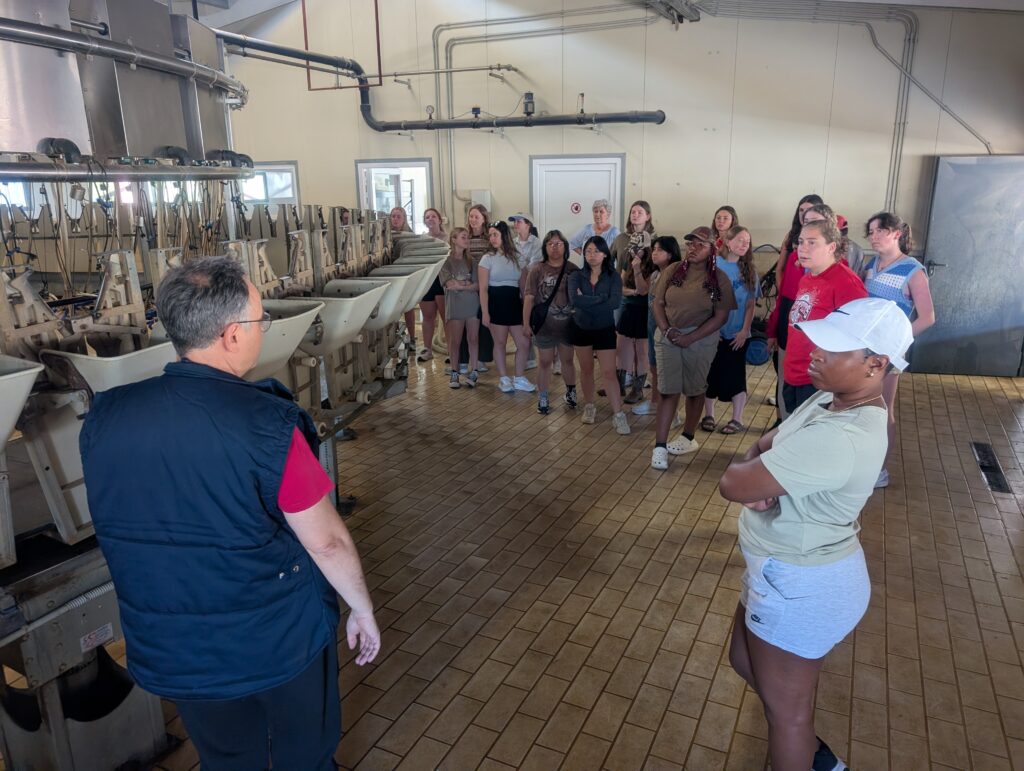
A tour of Epiros dairy products included learning about the milking parlor where sheep are milked to make feta cheese.
The program highlighted the major Greek agricultural science issues that have relevance for North Carolina and the United States, including food labelling and composition, animal welfare, olive oil tasting and sensory analysis, and aromatic herbs cultivation. Greek agricultural farms and firms who welcomed and educated NC State students included:
- Marianna’s Vine Leaves
- Votanakia (aromatic herbs family farm)
- Gerovassileou Winery (wines, wine museum, and vineyards)
- Pindos Poultry Enterprise (poultry cooperative)
- Klea Premium Products (olive oil)
- Epiros Dairy Products (cheeses and butter)
- Mouriki Greek Premium Honey (beekeeping and honey)
- Dionisos Pistachio Factory (pistachios and varied products)



